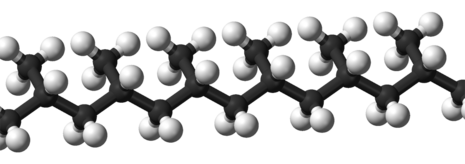From plastic to soap: the last frontiers of recycling

For the first time, researchers have used plastic to create soap. To achieve this, a team led by Virginia Tech scientists devised a new approach.
According to the official release , this innovative method has allowed them to recycle the plastic into chemicals known as surfactants, which are used extensively in the production of soap and detergent.
How it was developed
Plastics are chemically similar to the fatty acids present in soaps, it is just a question of making transformations to complete this similarity.
Because of this similarity, scientists have speculated that polyethylene can be converted into fatty acids and ultimately soap.
It wasn't a simple procedure. The researchers ran into a size problem: Plastic appears to be relatively large at a molecular level, with around 3,000 carbon atoms, while fatty acids are much smaller.
To solve this problem, the researchers created from scratch a reactor similar to a pyrolytic oven that can be used, in other procedures, to break down the plastic down to its basic particles.
For this, the bottom of the oven was heated to high temperatures to break the polymer chains, while its upper part remained at a low temperature to prevent them from breaking too much. This process is known as temperature gradient thermolysis.
The result was a substance made of short-chain polyethylene, a kind of wax.
These waxes were then used to obtain fatty acids through a catalytic oxidation process. At that point it was possible to carry out a last step, saponification, thus obtaining the surfactants which are the basis of the soap itself. At that point the "First soap made from plastic" was obtained.
This new process is applicable to both polyethylene and polypropylene, the two most widely used forms of plastic.
These account for over half of all plastic waste, amounting to nearly 200 million tonnes each year. More than 80% of plastic waste is discarded, with less than 10% recycled.
“Our research demonstrates a new path for upcycling plastics without using new catalysts or complex procedures. In this work, we have shown the potential of a tandem strategy for plastic recycling,” said Zhen Xu, the lead author of the paper. “This will enlighten people to develop more creative upcycling processes in the future.”
Interestingly, the process also appears cost-effective without the need to subsidize the process itself.
The study was published in the journal Science.

Thanks to our Telegram channel you can stay updated on the publication of new articles from Economic Scenarios.
The article From plastic to soap: the last frontiers of recycling comes from Scenari Economici .
This is a machine translation of a post published on Scenari Economici at the URL https://scenarieconomici.it/dalla-plastica-al-sapone-le-ultime-frontiere-del-riciclo/ on Mon, 14 Aug 2023 12:37:43 +0000.

